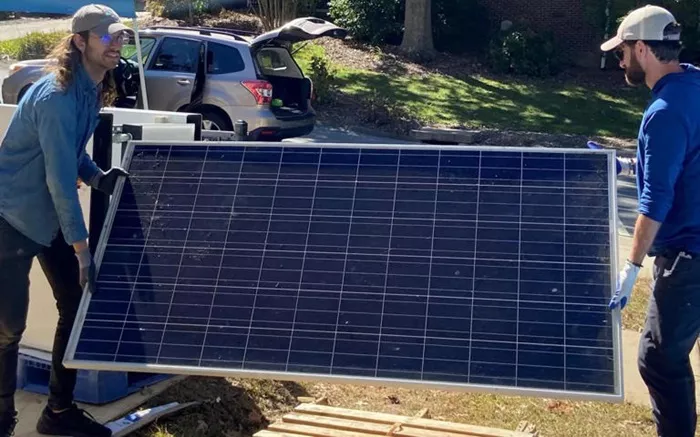Seventeen days after Hurricane Helene wreaked havoc on Western North Carolina, leaving behind downed power lines, broken water mains, and destroyed cell towers, signs of recovery began to emerge.
A convoy of trucks, filled with soldiers, water tanks, and supplies like pet food and diapers, traveled along Interstate 40. In towns, signs—both official ones with nonprofit logos and homemade versions—offered free food and water to those in need.
Among the signs of relief, one thing stood out: the generators.
These loud machines powered essential services. They ran trailers for showers, helping Asheville residents weeks after the city’s water system collapsed. They provided power for food trucks serving meals to those without cooking facilities and filtered water for drinking and flushing toilets.
While Western North Carolina’s situation was severe, it is not unique. Around the world, generators are crucial in disaster response. But one nonprofit, based in New Orleans, is working to reduce the reliance on fossil fuel-powered generators by replacing them with solar-powered battery systems.
The Footprint Project’s efforts in North Carolina mark the largest deployment in its history, and the organization hopes its work will spark long-term change.
“If we can get this sustainable tech in place quickly, the rebuild process will start a new conversation—one that might not have happened if we continued relying on the same methods,” said Will Heegaard, operations director of Footprint Project.
Heegaard explained that responders typically use what they know works. “Our job is to provide them with better solutions than the fossil fuel-based systems they’ve always used,” he said. “Once they experience these alternatives, they can begin requesting them, creating a shift toward broader systems change.”
Related Topics
- Cummins Q3 Profit Rises 23.3% Driven By Data Center Generator Demand
- Energy Task Force Focuses On Reforming IPP Agreements
- World’s Largest Solar Generator Powers Up With Nearly 500,000 Mirrors

